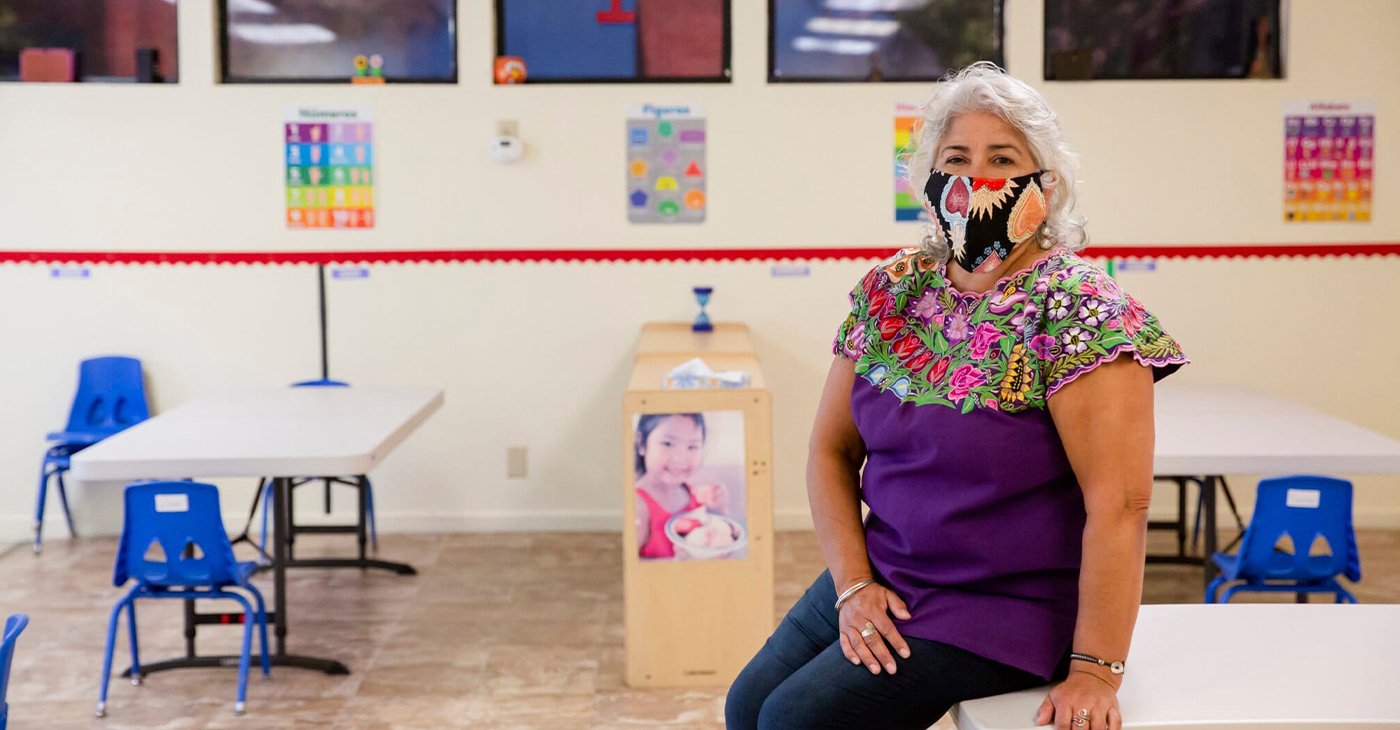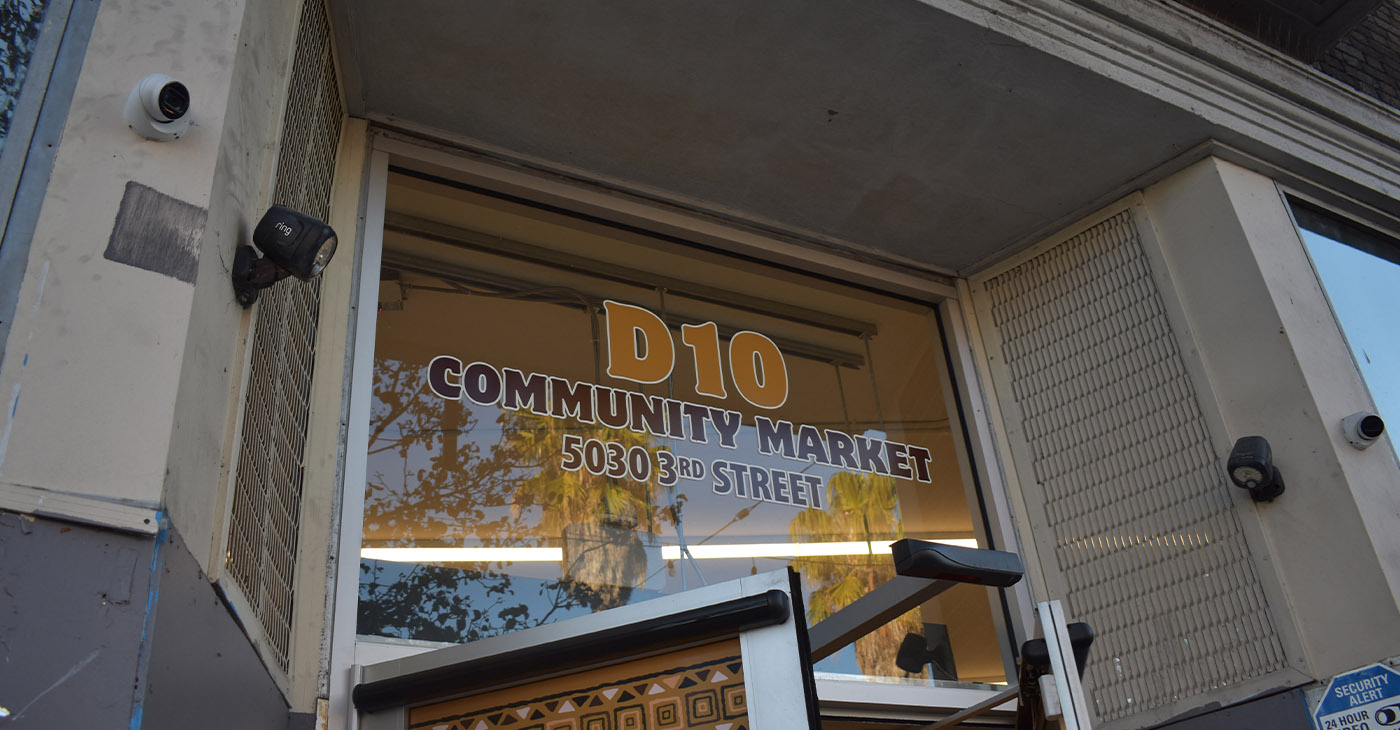Health
Early Exposure to Peanuts Helps Prevent Allergies in Kids

This Feb. 20, 2015, photo shows an arrangement of peanuts in New York. For years, parents of babies who seem likely to develop a peanut allergy have gone to extremes to keep them away from peanut-based foods. Now, a major study suggests that is exactly the wrong thing to do. (AP Photo/Patrick Sison)
MARILYNN MARCHIONE, AP Chief Medical Writer
For years, parents of babies who seem likely to develop a peanut allergy have gone to extremes to keep them away from peanut-based foods. Now a major study suggests that is exactly the wrong thing to do.
Exposing infants like these to peanuts before age 1 actually helped prevent a peanut allergy, lowering that risk by as much as 81 percent, doctors found. Instead of provoking an allergy, early exposure seemed to help build tolerance.
Dr. Anthony Fauci, director of the National Institute of Allergy and Infectious Diseases, called the results “without precedent” and said in a statement that they “have the potential to transform how we approach food allergy prevention.”
His agency helped fund the study, the largest and most rigorous test of this concept. Results were published online Monday in the New England Journal of Medicine and discussed at an American Academy of Allergy, Asthma and Immunology conference in Houston.
A big warning, though: The babies in the study were checked to make sure they didn’t already have a peanut allergy before they were fed foods that included peanuts, so parents of babies thought to be at risk for an allergy should not try this on their own.
“Before you even start any kind of introduction these children need to be skin-tested” to prevent life-threatening reactions, said Dr. Rebecca Gruchalla, an allergy specialist at the University of Texas Southwestern Medical Center in Dallas.
Also, small children can choke on whole peanuts, so smooth peanut butter or other peanut-based foods are safer, said Gruchalla, who wrote a commentary on the study in the journal.
The main finding — that early exposure to a problem food may keep it from becoming a long-term problem — should change food guidelines quickly, she predicted.
“Isn’t it wild? It’s counterintuitive in certain ways and in other ways it’s not,” she said.
Peanut allergies have doubled over the last decade and now affect more than 2 percent of kids in the United States and growing numbers of them in Africa, Asia and elsewhere. Peanuts are the leading cause of food allergy-related severe reactions and deaths. Unlike many other allergies, this one is not outgrown with age.
Food allergies often are inherited, but research suggests they also can develop after birth and that age of exposure may affect whether they do.
Researchers at King’s College London started this study after noticing far higher rates of peanut allergies among Jewish children in London who were not given peanut-based foods in infancy compared to others in Israel who were.
The study involved more than 600 children ages 4 months to 11 months old in England. All were thought to be at risk for peanut allergy because they were allergic to eggs or had eczema, a skin condition that’s a frequent allergy symptom.
All had been given skin-prick tests to make sure they were not already allergic to peanuts. They were put into two groups — 530 who did not show signs of peanut allergy and 98 others with mild-to-moderate reactions, suggesting an allergy might be developing.
Half of each group was assigned to avoid peanuts and the other half was told to consume them each week, usually as peanut butter or a snack called Bamba, a peanut-flavored puff.
The results at 5 years of age:
—Among children with no sign of allergy on the skin test: Only 2 percent of peanut eaters developed a peanut allergy versus 14 percent of abstainers.
—Among children with some reaction to peanuts on the skin test: Only 11 percent of peanut eaters developed an allergy versus 35 percent of abstainers.
Hospitalizations and serious reactions were about the same in all groups.
Questions remain: How much peanut protein do infants need to consume, how often and for how long, to avoid allergy? If a child stops eating peanuts for a while, will an allergy develop? Would the same approach work for other foods such as milk, eggs and tree nuts?
“These questions must be addressed, but we believe that because the results of this trial are so compelling, and the problem of the increasing prevalence of peanut allergy so alarming, new guidelines should be forthcoming very soon,” Gruchalla and Dr. Hugh Sampson of Mount Sinai Hospital in New York write in the medical journal.
American Academy of Pediatrics guidelines used to recommend against giving children foods with peanuts before age 3, but that advice was dropped in 2008 because there was no evidence it was preventing allergies. Now, most parents introduce peanut-based foods as is appropriate for the child’s age, like other solid foods.
Gruchalla thinks that babies with some signs of a peanut allergy risk, such as parents who are allergic, should have a skin test between 4 and 8 months of age. If it’s negative, they should be started on peanut products as the babies in this study were. If they show some sensitivity to peanuts, a “food challenge” monitored by a doctor experienced at this should be tried.
For children who already have peanut allergies, researchers have been experimenting with small regular amounts of exposure to try to train them to tolerate those foods. But these are still experimental and must be done with the help of a doctor.
___
Online:
Journal: http://www.nejm.org
___
Marilynn Marchione can be followed at http://twitter.com/MMarchioneAP
Copyright 2015 The Associated Press. All rights reserved. This material may not be published, broadcast, rewritten or redistributed.
Activism
Oakland’s Most Vulnerable Neighborhoods Are Struggling to Eat and Stay Healthy
For this story, we focused on eight of the 12 ZIP codes in Oakland, those pertaining to East and West Oakland. The ZIP codes include 94601, 94603, 94505, 94606, 94607, 94612, 94619, and 94621. We chose to concentrate on these specific areas, known as the Oakland Flatlands, due to its longstanding history of extremely low-income households and racial inequalities compared to ZIP codes in the Oakland Hills.

These Are the Contributing Factors
By Magaly Muñoz
On a recent trip to the grocery store in West Oakland, single mom Neemaka Tucker contemplated what’s more important to her family’s needs – expensive fresh produce or cheap instant ramen noodles.
“I’m trying to teach my kids to eat healthy, but then my pocket is like, ‘I’m broke’. Getting the processed foods is going to fill you up faster, even though it’s not good for your body,” Tucker said.
Bay Area residents are spending over $100 more a month on groceries than they were pre-pandemic. Those higher costs are straining wallets and forcing families to choose cheap over healthy, possibly contributing to more health problems. These problems are disproportionately affecting people in East and West Oakland, in neighborhoods primarily of low-income families of color.
Oakland residents are experiencing more health problems linked to poor diets, like diabetes, obesity, and heart disease than before the pandemic, particularly in neighborhoods of East and West Oakland, data shows.
“We see a direct relationship between what we eat and medical problems. What we eat affects our weight, our blood pressure and all those things circle back and have an effect on your diseased state,” said Dr. Walter Acuña, a family physician at Oakland Kaiser Medical.
According to data by UCLA Center for Health Policy Research, about 1 in 10 adults in East Oakland neighborhoods experience food insecurity. That’s twice as many people than in most other parts of the city.
Oakland residents’ health concerns are growing
For this story, we focused on eight of the 12 ZIP codes in Oakland, those pertaining to East and West Oakland. The ZIP codes include 94601, 94603, 94505, 94606, 94607, 94612, 94619, and 94621. We chose to concentrate on these specific areas, known as the Oakland Flatlands, due to its longstanding history of extremely low-income households and racial inequalities compared to ZIP codes in the Oakland Hills.
According to UCLA research, about one out of every five adults under 65 in these areas of East Oakland reported poor or fair health. But these problems weren’t isolated to East Oakland. About one in six adults under 65 reported poor or fair health in areas of West Oakland, like the 94607 ZIP codes.
A handful of ZIP codes (94601, 94603, 94605, 94621) in East Oakland also have the poorest health outcomes of any area in the city. Residents there experience the highest rates of obesity and adult diabetes.
UCLA data shows that there has been a two percent increase in the number of adults diagnosed with diabetes in West Oakland (ZIP code 94607) since 2017- 2018. An estimated 11.8% of adults in 94607 in 2021-22 said they had diabetes, whereas 9.8% reported it several years before.
But the problem is more significant, only a few miles away.
In the 94621 neighborhood in East Oakland, an estimated 16.6% of adult residents reported having diabetes in 2021-2022, and the neighboring ZIPs averaged about 15%, according to UCLA data. 2017-2018 data show that only 11% reported a diabetes diagnosis in the 94621, a 5.6% change from recent numbers. The ZIP code estimates are higher than the states’, county’s, and city estimates—11%, 12.4%, and 12.3%, respectively.
Doctors working with Oakland and the larger Alameda County area are seeing an increase in the number of people coming to their offices with chronic health issues in the last few years.
Acuña said he’s frequently treating more and more adults with diabetes and hypertension.
Patients often tell him that it’s easier to afford unhealthy, cheap food than it is to afford the things that are going to make them feel better and stay healthy, he said
Dr. Steven Chen, Chief Medical Officer of Alameda County’s Recipe4Health, said that he’s seeing more kids across the region suffering from obesity, or adults on the brink of developing chronic illnesses, than in previous years.
“Chronic disease is a big epidemic. What’s the root of it? I think food is a big component,” Chen said.
He has seen evidence of improved health when people have access to better food. People with Type 2 diabetes experience a boost in metabolic and sugar management to healthy levels, and those with high blood pressures experience normal numbers.
Recipe4Health is a county-wide program that uses food-based interventions to treat and prevent chronic conditions, address food insecurity, and improve health and racial equity. The program provides up to 12 weeks of groceries for people who are at risk or are experiencing food insecurity.
It’s important for public sectors to have these kinds of investments locally because the results are tangible, he said.
“If our values are that no one gets left behind and that everyone should have an equal opportunity to health and health equity, then we need always to ensure that we are serving those communities that often are left behind,” Chen said.
Experiencing food insecurity in Oakland
Unfortunately, healthy food is becoming increasingly difficult for Oakland residents to access. Over the last five months, The Oakland Post heard from over 50 residents about their struggles finding and affording healthy food. We visited food banks, talked with people at markets and food distribution events, and distributed an online survey.
We learned that residents are travelling to other nearby cities to get cheaper groceries, financial assistance programs like CalFresh are challenging to navigate, wages are low, and food is getting more expensive while the quality appears to be dropping.
Andres, who asked us not to use his last name due to his undocumented status, said he often relies on food distribution from organizations like the Street Level Health Project for his weekly groceries. He wouldn’t be able to eat complete meals otherwise, due to the lack of consistent employment at his car washing job during the winter months.
With eight people living under one roof and only three adults contributing to the household income, he said things are tight.
“During these months, we’re always backed up on paying our bills, including rent, and we’re trying to do more with what little that we have, which is not much,” Andres said.
Andres’ biggest complaint about grocery shopping is the lack of fresh and healthy food that is affordable and good quality. He’s been to food banks and grocery stores where the produce rots within a day or two of receiving it, forcing him to buy fast food in order to feed his family.
Down the street at the Unity Council’s weekly grocery distribution, Mayra Segovia, a single woman in her 50s, said she visits this location almost every week to get food. Her fixed income on Social Security makes it difficult to afford her basic necessities.
Segovia said she receives CalFresh funding to pay for her groceries, but the almost $300 assistance is not enough to get her through the month, so she gets creative. She often does favors for local vendors in exchange for meals. Even with the Social Security checks of a little over $1,000 a month and other resources like subsidized housing, the cost of living is going up. She’s blaming the government for their contribution to the problem.
“We’re not all rich like Donald Trump and all those corrupt politicians, we don’t have that much money like that,” Segovia said.
Social service assistance is falling short
Several people we spoke with said financial food assistance like CalFresh isn’t supplementing the gaps in their budgets.
Neemaka Tucker, mom of two elementary-aged kids, said she receives $123 a month from CalFresh, yet she’s spending almost $600 on groceries at the store. She feels like she should be getting more assistance, especially considering her lower, single income. “I’m appreciative [of the CalFresh funds] that I get anything because every little bit helps, but it’s still not enough for my family,” Tucker said.
A lack of grocery store options in West Oakland has also made it even harder to get food on the table, Tucker said.
There are more convenience stores than grocery stores within walking distance to her home on the northeast side of West Oakland, and the prices seem to be exacerbated because of their limited food stock, Tucker said. A gallon of milk at the store could run her up to $3.80, but at the local convenience market, it’s nearly $6.
“I just find that the majority of the money that I’m spending is on the travel to get the food, then on the food itself,” Tucker said.
Healthy groceries are a necessity to manage Tucker’s health. She is diabetic and has high blood pressure, so eating and buying fresh produce is important because keeping her symptoms at bay is a must for her health. It’s been difficult to get what she needs for her body to maintain her chronic health problems because she often battles with lack of affordability of what she’s buying, she said.
“I find myself trying to figure out what’s healthy for each person and then have enough of it so we all can [eat well],” Tucker said. “Back in the day, bread and potatoes used to be staples to get your kids full, but food like that makes me sick because that’s too much [carbohydrates] since I have diabetes.”
Both her kids are athletes who also need healthy food. She’s finding that even though her kids don’t eat meat, which tends to be expensive, she’s still spending more than she’d like to on fruit and vegetables.
In Oakland, the local investment is low
In the last year, the city has cut grants to nonprofits like Meals on Wheels, which serves 3,000 hungry seniors, and Street Level Health Project, which provides groceries and meals to undocumented day laborers. Tax measures, like the Sugar-Sweetened Beverage Tax, were intended to help decrease the food and health crisis but are also not being managed in the way Oakland residents voted for, according to community leaders and advisory board members. The majority of the tax money is going towards funding city agencies.
The Oakland Post contacted city and county officials several times for comment but did not get a response.
Across the Bay Area, San Francisco is investing millions to address food insecurity through a pilot program that establishes free grocery stores in food desert districts. Shoppers of the pilot market said they have seen a positive change to the way they feed their families and how much they’re able to save every month.
Oakland resident PC, who chose to use an abbreviated version of his name to protect his privacy, said he’d be interested in seeing a market like the one in San Francisco because it would alleviate the tight budget he has for himself.
PC said he’s had some unpleasant experiences with food distribution workers being rude to residents waiting for grocery bags. “The line is already long as it is and can sometimes feel shameful when you’re going through hard times,” PC said, so an option to get free food in a setting that resembles a market would be ideal.
The garden lead for West Oakland’s People’s Programs, ab banks, helps deliver fresh produce from a local garden to households in the projects, because the need for healthier options has been particularly high in recent years, they said.
People’s Program serves around 170 people in the 94607 area with groceries, along with a mobile health clinic and free breakfast program. Their goal is to serve a community that already deals with its own set of disadvantages, and looks to show people that not everything needs to contribute to a bigger gain and people have the right to use the local land to grow the food they need.
Banks said they see firsthand what the lack of investment in West Oakland has done to folks: homelessness, priced out living situations, environmental racism, and lack of food access.
They explained that although they feel a duty and a calling to the work at People’s Program to help an underserved neighborhood, they questioned how the city is pouring millions of dollars towards finding solutions to Oakland’s biggest problems but no significant change has happened yet. banks said there are basic necessities that should be birthrights and not restricted to what the government thinks people need.
“[The investment] is not enough. There’s no access to fair housing, not enough access to food, not enough access to healthcare. But that’s just not specific to Oakland, that’s a United States problem,” banks said.
Reporter Magaly Muñoz produced this story as part of a series as a 2024 USC Annenberg Center for Health Journalism Data Fellow and Engagement Grantee.
Bay Area
Five Years After COVID-19 Began, a Struggling Child Care Workforce Faces New Threats
Five years ago, as COVID-19 lockdowns and school closures began, most early educators continued to work in person, risking their own health and that of their families. “Early educators were called essential, but they weren’t provided with the personal protective equipment they needed to stay safe,” said CSCCE Executive Director Lea Austin. “There were no special shopping hours or ways for them to access safety materials in those early and scary months of the pandemic, leaving them to compete with other shoppers. One state even advised them to wear trash bags if they couldn’t find PPE.”

UC Berkeley News
In the first eight months of the COVID-19 pandemic alone, 166,000 childcare jobs were lost across the nation. Significant recovery didn’t begin until the advent of American Rescue Plan Act (ARPA) Child Care Stabilization funds in April 2021.
Today, child care employment is back to slightly above pre-pandemic levels, but job growth has remained sluggish at 1.4% since ARPA funding allocations ended in October 2023, according to analysis by the Center for the Study of Child Care Employment (CSCCE) at UC Berkeley. In the last six months, childcare employment has hovered around 1.1 million.
Yet more than two million American parents report job changes due to problems accessing child care. Why does the childcare sector continue to face a workforce crisis that has predated the pandemic? Inadequate compensation drives high turnover rates and workforce shortages that predate the pandemic. Early childhood educators are skilled professionals; many have more than 15 years of experience and a college degree, but their compensation does not reflect their expertise. The national median hourly wage is $13.07, and only a small proportion of early educators receive benefits.
And now a new round of challenges is about to hit childcare. The low wages paid in early care and education result in 43% of early educator families depending on at least one public support program, such as Medicaid or food stamps, both of which are threatened by potential federal funding cuts. Job numbers will likely fall as many early childhood educators need to find jobs with healthcare benefits or better pay.
In addition, one in five child care workers are immigrants, and executive orders driving deportation and ICE raids will further devastate the entire early care and education system. These stresses are part of the historical lack of respect the workforce faces, despite all they contribute to children, families, and the economy.
Five years ago, as COVID-19 lockdowns and school closures began, most early educators continued to work in person, risking their own health and that of their families. “Early educators were called essential, but they weren’t provided with the personal protective equipment they needed to stay safe,” said CSCCE Executive Director Lea Austin. “There were no special shopping hours or ways for them to access safety materials in those early and scary months of the pandemic, leaving them to compete with other shoppers. One state even advised them to wear trash bags if they couldn’t find PPE.”
The economic impact was equally dire. Even as many providers tried to remain open to ensure their financial security, the combination of higher costs to meet safety protocols and lower revenue from fewer children enrolled led to job losses, increased debt, and program closures.
Eventually, the federal government responded with historic short-term investments through ARPA, which stabilized childcare programs. These funds provided money to increase pay or provide financial relief to early educators to improve their income and well-being. The childcare sector began to slowly recover. Larger job gains were made in 2022 and 2023, and as of November 2023, national job numbers had slightly surpassed pre-pandemic levels, though state and metro areas continued to fluctuate.
Many states have continued to support the workforce after ARPA funding expired in late 2024. In Maine, a salary supplement initiative has provided monthly stipends of $240-$540 to educators working in licensed home- or center-based care, based on education and experience, making it one of the nation’s leaders in its support of early educators. Early educators say the program has enabled them to raise wages, which has improved staff retention. Yet now, Governor Janet Mills is considering cutting the stipend program in half.
“History shows that once an emergency is perceived to have passed, public funding that supports the early care and education workforce is pulled,” says Austin. “You can’t build a stable childcare workforce and system without consistent public investment and respect for all that early educators contribute.”
The Center for the Study of Childcare Employment is the source of this story.
Activism
San Francisco Is Investing Millions to Address Food Insecurity. Is Oakland Doing the Same?
There are over 350 grocery programs across San Francisco. Less than a handful in District 10, a neighborhood classified as a food desert, and includes Hunters Point, one of the lowest income areas in the city.

By Magaly Muñoz
On a Thursday evening in February, Marquez Boyd walked along the aisles of San Francisco’s District 10 Community Market looking for eggs and fresh produce to take home to his children. He has been trying new recipes with ingredients he previously couldn’t afford or access.
“I learned how to cook greens since they got a lot of fresh greens here,” Boyd said. “All that stuff is better and more healthy for my kids because they’re still young.”
Meals filled with fresh produce are now possible for Boyd since the District 10 market in Hunters Point opened in 2024 when Bayview Senior Services, a non-profit running the program, received a $5 million investment from the city of San Francisco.
The market is a twist on a traditional food bank, where people can often wait in long lines for pre-bagged groceries they may not need. Here, the goal is to offer people in need a more traditional grocery store setting, with a bigger range of healthy options and less shame for needing assistance.
It’s a twist that Boyd appreciated. “This set up is way better as opposed to maybe like a food bank line,” he said. “It’s easier and faster.”
Similar models exist in Santa Barbara and Tennessee.
There are over 350 grocery programs across San Francisco. Less than a handful in District 10, a neighborhood classified as a food desert, and includes Hunters Point, one of the lowest income areas in the city.
Census Bureau data show that the median income for households in the 94124 zip code, where Hunters Point is located, is just under $83,000 annually. Black households earn about $46,000, Native Hawaiian or other Pacific Islanders earn almost $41,000, and Hispanic households make just above the median income- an average of $86,000.
Located at 5030 3rd Street, the aisles are lined with fresh produce, canned goods, bread and snacks. While refrigerators and freezers in the back of the market are filled with dairy products and meat.
The best part- everything inside is free for eligible customers.

The San Francisco District 10 Community Market is stocked with fresh produce, dairy, meat and chicken, bread, and cultural food staples. Directors of the market say they pride themselves on providing healthy options for community members. Photo by Magaly Muñoz.
“The interesting thing about this market is that it’s a city-funded effort to create something besides the average food line to give more dignity and choice than is normally given to low-income people,” said Cathy Davis, executive director of Bayview Senior Services.
Davis said people feel more comfortable coming into the market because they can choose the food they want and at a time that’s convenient for them.
Boyd, a single father of two kids, recently lost his job and relied on his sister’s generosity before discovering the market. He comes to market when he gets off of work in the evening.
“It’s a lot of people in these communities that don’t get a chance to eat healthy,” Boyd said. “They don’t have the money to go to grocery stores to buy expensive stuff.”
Another shopper, Rhonda Hudson, said the market helped her meet her grandson’s diet-related health problems. She used to travel outside the neighborhood for affordable groceries, but now she no longer has to.
According to the city’s Human Services Agency, there are no plans to expand the markets in San Francisco due to budget constraints.
But Davis isn’t worried about losing the market funding.
“City leaders were on board with creating it and finding the money to put it together so I would say we didn’t have to advocate because it came through the government. Now it’s our job to keep it going to prove that it’s a pilot worth maintaining,” Davis said.
District 10 Supervisor Shamann Walton, who co-sponsored the ordinance, said that projects like the market are “essential to our neighborhoods,” where access to affordable food has been a challenge.
“Investing in local community markets helps ensure that families have reliable, healthy food options close to home, addressing food insecurity and supporting the well-being of our community regardless of income,” Walton said.

Rhonda Hudson is a shopper of the District 10 Community Market in San Francisco. The fresh produce she gets at the free grocery store program helps her grandson, who has a diet-related illness, stay healthy. Photo by Magaly Muñoz.
Why Not Oakland?
Only slightly larger than San Francisco, Oakland has over 400 food distribution sites. Oakland provides grants to nonprofit-run organizations who run grocery programs. But in recent months, the city has begun to reduce those, forcing some organizations to regroup, and making it challenging to implement a community market similar to San Francisco’s.
The Oakland Post repeatedly reached out to city and county officials for comment on the story but did not receive a response.
At several food banks across West and East Oakland, residents shared their frustrations about long lines, wilting produce, and limited food choices.
At one food bank, located at Christian Tabernacle Church, a young mother, who requested anonymity for privacy reasons, waited in the rain for over three hours for a single bag of groceries.
“I like to get here early because I get better [quality] fruits and vegetables,” she said. She added that it’s not a lot of food that she receives for her family, but it helps close the gap when her budget is tight.
Behind her, several other women waited their turn. Neither the timing of the distribution nor the location of the food bank fit their schedules, the women said, but their choices feel limited.
Only a handful of Oakland food bank sites operate throughout the day, like the San Francisco market. Most food distribution programs are sustained by Alameda County Food Bank, not by city funding. Private grants and donations also help fund the programs.
Securing city funding is increasingly challenging. Oakland faces a $130 million budget shortfall, with a projected $280 million deficit in the next biennial cycle. Citing budget concerns, the city has reduced numerous department budgets and grants. One of those cuts included slashing the longstanding SOS Meals on Wheels grant, which helped provide food to 3,000 seniors.
Charlie Deterline, executive director of Meals on Wheels, said the termination of their $150,000 annual grant could mean that Oakland residents might see a change in the amount of meals they receive. The organization has gone 19 months without funding from that grant, Deterline said, but “continued working on good faith from the city” because they were assured they would be paid out. Now, Deterline is having doubts.
The program also received a grant of more than $125,000 from the Sugar Sweetened Beverage Tax. Yet, on June 12, the city informed grant recipients that the funding could be rescinded in order to balance the budget. That ultimately happened, said Deterline.
“Oakland is by far the most expensive city for us to operate in. It is also where the greatest need is – for us to meet that need, it will take the entire community coming together,” Deterline said.
From the sugar tax, money from that measure is also not being allocated correctly as the majority of the funding has been used to fund government services, said members of the SSB tax advisory board.
The tax generates around $7 million annually. 25% to 40% of the funding goes towards grants for community based organizations instead of the 60% allocation that the SSBT advisory board recommended the city to use for health programs. The rest of the funding goes to the city, according to Oakland’s mid-cycle budget.
Advisory board member Dwayne Aikens said he’s not sure Oakland will ever renew the grants that have been cut from this tax. “I’m looking at the conditions of the city and I’m not optimistic,” Aikens said. “If they don’t have the money now, I don’t think they’ll have the money in the future.”
Aikens said the tax was “kind of a waste.” He’s heard displeasure from the community about the lack of funding into Black and Brown neighborhoods, groups who typically live in areas of Oakland that see health and income disparities.
Meanwhile, the Community Market, which reflects the diversity of the Bayview Hunters Point community, is investing in over 800 of the city’s most vulnerable households. In-store staff and directors speak the languages common to the area and the program provides a culture-of-the week selection of foods for those interested in trying something new.
Davis said it’s up to local municipalities to ensure that residents don’t go to bed hungry, and investments need to be made in order to combat the pockets of neighborhoods who are on the brink of food insecurity.
“That’s just such a core responsibility and a core goal of everyone, to make sure that people are fed and healthy. It’s not a luxury item,” Davis said. “It’s something that needs to happen, whether we’re in a budget crisis or not.”
Reporter Magaly Muñoz produced this story as part of a series as a 2024 USC Annenberg Center for Health Journalism Data Fellow and Engagement Grantee.
-

 Activism4 weeks ago
Activism4 weeks agoWe Fought on Opposite Sides of the Sheng Thao Recall. Here’s Why We’re Uniting Behind Barbara Lee for Oakland Mayor
-

 Activism4 weeks ago
Activism4 weeks agoFaith Leaders Back Barbara Lee for Mayor, Criticize Candidate Loren Taylor for Dishonest Campaigning
-

 Activism3 weeks ago
Activism3 weeks agoOakland’s Most Vulnerable Neighborhoods Are Struggling to Eat and Stay Healthy
-

 #NNPA BlackPress4 weeks ago
#NNPA BlackPress4 weeks agoRev. Dr. Jamal Bryant’s Black Church Target Boycott Mobilizes 150,000
-

 #NNPA BlackPress4 weeks ago
#NNPA BlackPress4 weeks agoRecently Approved Budget Plan Favors Wealthy, Slashes Aid to Low-Income Americans
-

 Activism2 weeks ago
Activism2 weeks agoOakland Post Endorses Barbara Lee
-

 Activism4 weeks ago
Activism4 weeks agoGroup Takes First Steps to Recall District Attorney Diana Becton
-

 Activism4 weeks ago
Activism4 weeks agoOakland Post: Week of March 19 – 25, 2025














































